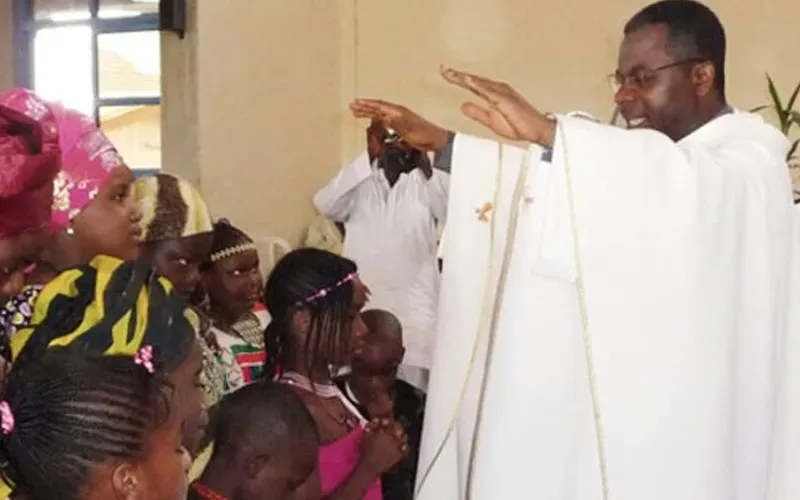“Unfortunately, until today, it is difficult to even get funding to run such projects that we are trying to use to help deal with the trauma,” he observed, and explained, “Normal European agencies are looking for deliverables. They are looking for things like you can buy blankets and bags of rice and so forth and go and deliver. And then write the names of the people you gave. And the next day, you are able to write reports.”
Those are the easier ones to do; when you do the kind of training we are trying to do, for you to get the outcome, results, it will take many years, Fr. Ehusani says, underscoring the challenge of finding partners in initiatives with long-term results such as training and healing the healers.
The Abuja-based Priest said that the world needs to know what is happening in Nigeria where thousands of Christians have already been killed in the first days of 2021.
“The campaign with the international community should continue for attention to be drawn to what is happening. The UN should be aware of what is happening. Various international bodies should be aware of what is happening, those that can have some voice, those that borrow our government’s money because on account of this widespread insecurity, our economy is going down like never before,” he says.
Reflecting on the background of the situation of Christians in Nigeria, Fr. Ehusani noted that while attacks in the West African nation also target Muslims, Christians in the country are the ones who have had a long history of persecution and discrimination that date back to hundreds of years.
(Story continues below)
“In 1804, there was a Jihad called the Ousman Dan Fodio jihad that overran the entire Northern Nigeria, 200 years ago,” he says, adding that the war against Christians created an impression that Northern Nigeria is Islamic.
Years later upon the arrival of Christianity, Fr. Ehusani narrates that many Christian missionaries were limited as to where they could go and preach.
“The British colonialists limited the Christian missionaries, saying, look, you can’t go into the Center of the town of these people. They are Muslims. Don't go in there to disturb the peace. You can only stay outside the city so that those who are non-Hausa and non-Fulani who come from other places, they are the ones you can preach to. Please don't go and disturb the peace,” he says.
With such structures in place, children growing up in Northern Nigeria are convinced that the region is an Islamic territory, the Catholic Priest says.
“Whatever is happening today did not just begin 10, 12 years ago,” he says, and adds, “It has a long history, a long history of exclusion.”
He says that to date, Christians in Northern Nigerian are locked out of some positions, including those in local government.
Additionally, the country has hundreds of tribes, with the prominent two oppressing others, Fr. Ehusani says.
“Nigeria has almost 400 indigenous groups, tribes. Now there are prominent tribes like the Hausas and the Fulanis. They just don't acknowledge those numerous groups who by the way, if you put all of them together, are the majority. But they have been oppressed for over 200 years,” he says.
The member of the Clergy of Nigeria’s Catholic Diocese of Lokoja bemoans the economic situation in Nigeria, with many foreign businesses closing up operations in the country and choosing to establish themselves in more peaceful countries.
“In 2015 when this government took over, we officially had 150 Naira to a dollar. Today, we have 500 Naira to a dollar,” he says, and adds, “Things are getting terrible because industries are closing; companies are relocating to either Kenya, Ghana or South Africa. Farmers are not able to go to farms. I mean, it's now a risky affair to go to your farm.”
“There are parts of this country where lots of people are living in internally displaced camps, IDP camps. So many people are now suffering,” Fr. Ehusani says.
He went on to call for spiritual solidarity saying, “We need the prayers of the international community of Christians.”
This is the last of the three-part series of analyses of insecurity in Nigeria amid attacks and abductions. The first part explained the parties involved and why the government seems unable to resolve the problem. The second part focused on how the militants fund their operations. This third part has addressed a psycho-spiritual initiative, which was realized in a partnership that benefits victims of Christian persecution in Nigeria and the traumatized in a host of other African countries.
ACI Africa was founded in 2019. We provide free, up-to-the-minute news affecting the Catholic Church in Africa, giving particular emphasis to the words of the Holy Father and happenings of the Holy See, to any person with access to the internet. ACI Africa is proud to offer free access to its news items to Catholic dioceses, parishes, and websites, in order to increase awareness of the activities of the universal Church and to foster a sense of Catholic thought and culture in the life of every Catholic.








